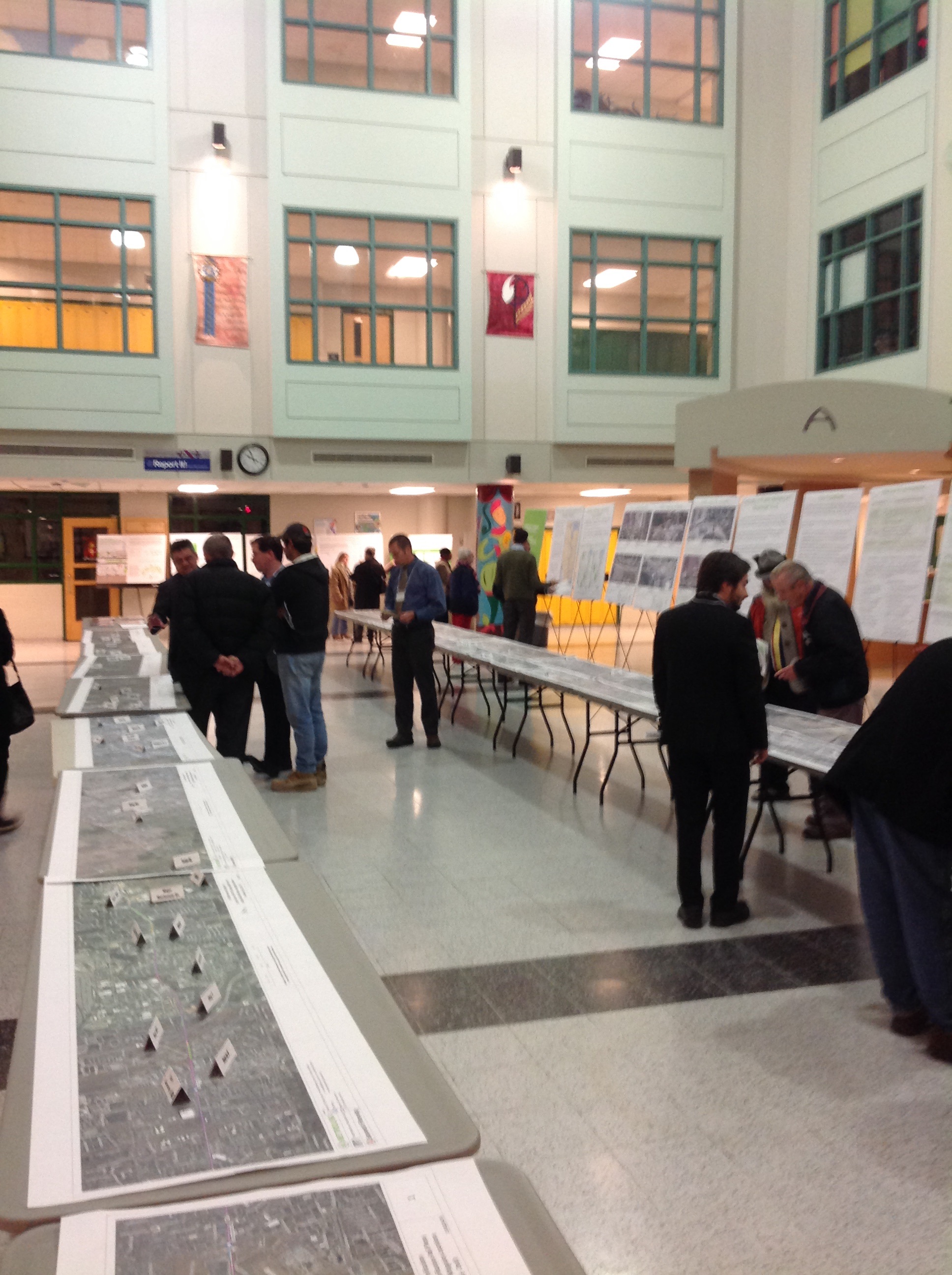Aurora GO Rail station is to get a grade separation at Wellington Road East but the Metrolinx Board - which meets on Friday - is silent on what is going to happen further north.
The Metrolinx priority is to look at grade separations in the all-day two-way 15 minute zone whose cut-off point on the Barrie line is, of course, Aurora. Here in Newmarket we do not know what is going to happen at Mulock Drive, Water Street, Timothy Street and Davis Drive. Nor do we know what is going to happen at Green Lane in East Gwillimbury which is now a major growth area. (The photo on right shows the Metrolinx consultation in Aurora last November.) 
Regional Express Rail: the way to go
Regional Express Rail is a great initiative but long overdue. Expanding the GO Rail network is going to cost a mountain of cash but it has to be done. The alternative - in the absence of tolling the major highways - is a slow death by strangulating gridlock, killing jobs and economic growth.
Level crossings
In all, there are 185 level crossings on the GO rail network and we don't yet know how many will be replaced by grade separations. I suspect a small fraction. I learn that grade separations can cost between $25m - $100m. This is serious money.
So it comes as no surprise that Metrolinx is looking at ways to keep as many level crossings as they can - complete with their bells, barriers and flashing lights. There is going to be another study of level crossings with a report expected in September 2017.
Significant costs
The report before the Metrolinx Board says:
"Grade separation projects... require significant capital investment and constitute substantial work on the corridor involving track and road diversions, property acquisition and flagging. As such, there is both a fiscal and operational limit to the extent that Metrolinx and its municipal counterparts can advance grade separation projects as part of Regional Express Rail."
Metrolinx is concentrating on their very top priorities for grade separation. They also want to share the burden with municipalities. They've never been quite so blunt before.
"As shared pieces of infrastructure, it is expected that costs associated with grade separations will be shared between the rail and road authorities."
"Under Canadian Transportation Agency guidelines, the agency that requires the grade separation is responsible for 85% of the basic costs. Where there is mutual benefit, parties share costs 50% each. Also by agreement other arrangements are possible."
"Metrolinx will continue to work towards cost sharing agreements with municipal partners for each location in a manner in keeping with CTA guidelines."
This doesn't require any translation.
On the hook
If municipalities want grade separations, they are going to be on the hook.
York Region is already talking about looking at new revenue sources being sought for unfunded projects in the Transportation Master Plan.
Without checking, I can't immediately recall if grade separations are in there. But, if not, they should be.
This email address is being protected from spambots. You need JavaScript enabled to view it.
